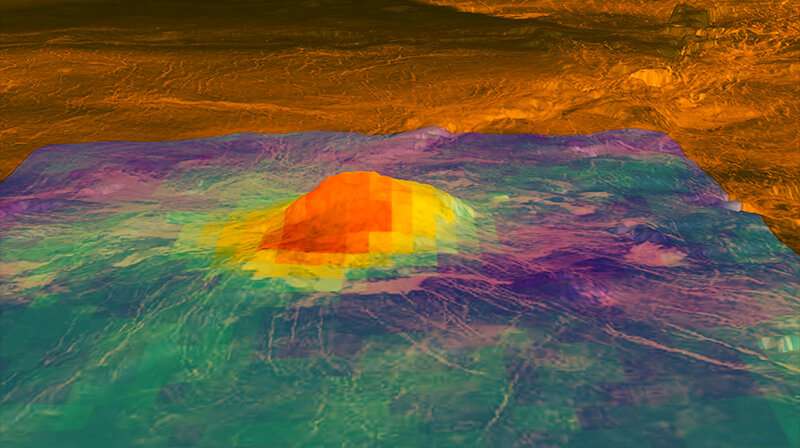
New research led by Universities Space Research Association (USRA) and published today in Science Advances shows that lava flows on Venus might be just a few years old, recommending that Venus could be volcanically active today—making it the only planet in the solar system, other than Earth, with recent eruptions.
“If Venus is indeed active today, it would make a great place to visit to better understand the interiors of planets,” says Dr. Justin Filiberto, the study’s lead author and a Universities Space Research Association (USRA) staff scientist at the Lunar and Planetary Institute (LPI). “For example, we could study how planets cool and why the Earth and Venus have active volcanism, but Mars does not. Future missions should be able to see these flows and changes in the surface and provide concrete evidence of its activity.”
Radar imaging from NASA’s Magellan spacecraft in the mid-1990s uncovered Venus, neighboring planet, to be a world of volcanoes and broad lava flows. During the 2000s, the European Space Agency’s (ESA’s) Venus Express orbiter shed new light on volcanism on Venus by estimating the amount of infrared light emitted from part of Venus’ surface (during its nighttime). This new information enabled researchers to recognize fresh versus changed lava flows on the surface of Venus. In any case, up to this point, the ages of lava eruptions and volcanoes on Venus were not outstanding because the alterations rate of fresh lava was not very much compelled.
Dr. Filiberto and his partners reproduced Venus’ hot caustic atmosphere in the laboratory to explore how the observed Venusian minerals respond and change after some time. Their experimental results indicated that an abundant mineral in basalt—olivine—responds quickly with the atmosphere and within weeks gets covered with the iron oxide minerals—magnetite and hematite. They further found that the Venus Express perceptions of this change in mineralogy would just take a few years to happen. In this way, the new results by Filiberto and coauthors propose that these lava flows on Venus are extremely youthful, which thus would infer that Venus does indeed have active volcanoes.
Dan Barwell is a freelance editor for heraldquest.com and he is the best editor. He born in Tempa, and he graduated from the University of Tampa with a Marketing and Economics degree. After beginning his career in content creation and copywriting, he joined the Herald Quest.
Disclaimer: The views, suggestions, and opinions expressed here are the sole responsibility of the experts. No Herald Quest journalist was involved in the writing and production of this article.